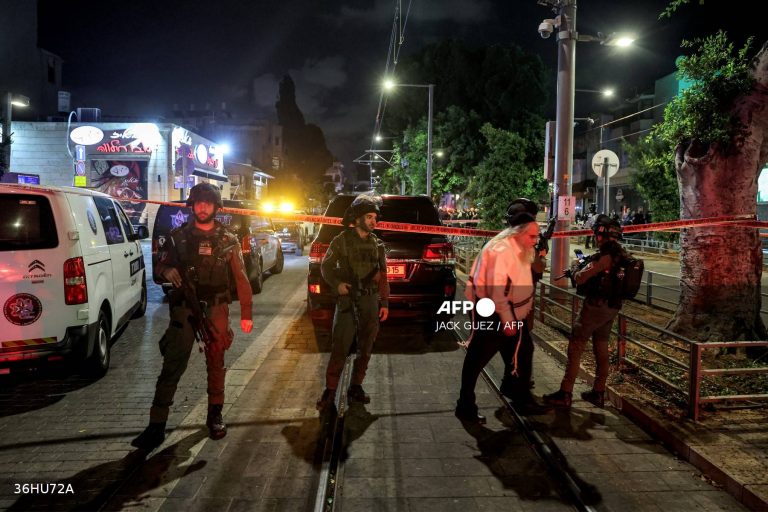Iran launched a barrage of missiles targeting Israel on Tuesday, a move it claimed was in retaliation for the killings of key leaders from Iran-backed militant groups. The assault triggered widespread alarm in Israel and throughout the region, sending civilians into shelters and raising the specter of a broader conflict.
The Israeli military confirmed the missile attack, stating: “A short while ago, missiles were launched from Iran towards the State of Israel,” as air raid sirens blared across the country. After approximately one hour, the military announced the threat had subsided, with most of the missiles intercepted by Israel’s air defense systems. Residents were then permitted to leave shelters. Initial reports indicated that between 150 and 200 missiles were fired.
This marks Iran’s second direct attack on Israel this year, following a missile and drone assault in April in response to an Israeli airstrike on the Iranian consulate in Damascus.
Explosions were heard over Jerusalem, according to AFP journalists, while rescue services reported two people lightly injured by shrapnel in central Israel. Iran’s state media confirmed the attack, with its Revolutionary Guards Corps stating it was in retaliation for the recent deaths of Hezbollah leader Hassan Nasrallah and Hamas leader Ismail Haniyeh—both of whom were reportedly killed in incidents linked to Israel.
UN Secretary-General Antonio Guterres condemned the escalation, urging for an immediate ceasefire and warning of the potential for the conflict to spread further across the region.
Airspace Closures and International Responses
Israel responded by closing its airspace, and neighboring countries—including Iraq, Lebanon, and Jordan—followed suit. Jordanian air defenses engaged missiles and drones over the capital, Amman, as Israel’s allies attempted to intercept the incoming projectiles.
U.S. President Joe Biden directed the American military to assist in defending Israel, with orders to shoot down any Iranian missiles. Despite being a major backer of groups like Hezbollah and Hamas in the region, this attack marked one of the few instances in which Iran directly targeted Israel.
Israeli Ground Raids in Lebanon
In parallel with the missile strikes, Israel’s military initiated targeted ground operations in southern Lebanon, aimed at Hezbollah positions. Though the scale and duration of the operations remain unclear, Israeli forces have been conducting raids following a series of airstrikes that have left hundreds dead, including Nasrallah.
Iran has vowed revenge for Nasrallah’s death, with Tehran warning that his killing could lead to Israel’s “destruction.” However, the Iranian foreign ministry denied plans to send troops to engage directly with Israel.
The Pentagon confirmed that the U.S. is reinforcing its military presence in the Middle East, deploying several thousand additional troops to the region. Meanwhile, Hezbollah claimed to have struck an Israeli intelligence facility near Tel Aviv, escalating tensions further.
Global Calls for De-escalation
The intensifying conflict has drawn widespread international concern, with world leaders urging restraint. China condemned violations of Lebanese sovereignty, while Russia called on Israel to cease hostilities. Despite the growing violence, President Biden advocated for a ceasefire, though he reiterated U.S. support for Israel’s efforts to neutralize threats along its borders.
In Lebanon, the situation has become dire, with over 1,000 casualties reported since mid-September. Prime Minister Najib Mikati and international humanitarian organizations have appealed for $400 million in aid, fearing that as many as one million people could be displaced.
The conflict erupted following Hamas’s surprise attack on Israel on October 7, which killed over 1,200 Israelis. In response, Israel launched a military campaign that has left more than 41,000 dead in Gaza, predominantly civilians, according to figures provided by local authorities. The UN has called the casualty reports reliable and has urged all parties to halt the violence.
Ongoing Gaza Bombings and Casualties
In Gaza, Israeli airstrikes continued unabated on Tuesday, killing 19 more people, according to local civil defense officials. Meanwhile, Hamas called for international solidarity with Gaza and Lebanon, organizing rallies to mark the one-year anniversary of the October 7 attack.
As the situation continues to deteriorate, the international community is on high alert, bracing for the possibility of a further regional conflagration.
